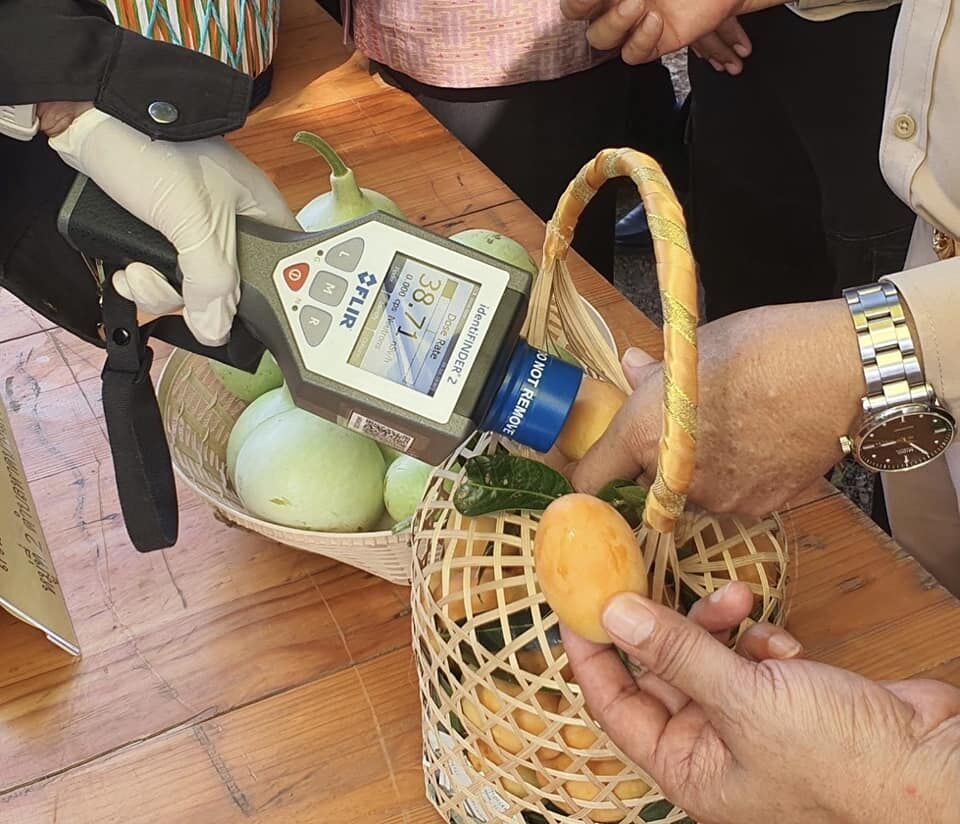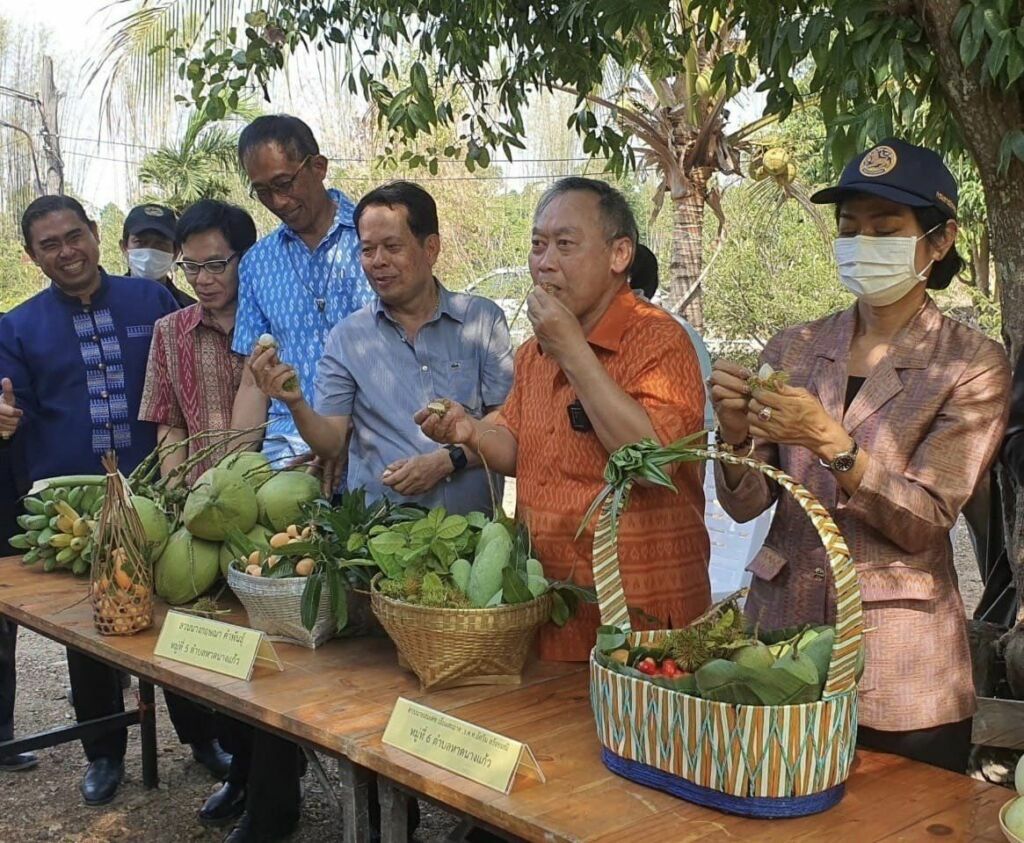Fruit to the rescue: governor eases contamination worries by eating some mango

To alleviate concerns about radioactive contamination in the province following the theft of a Caesium-137 cylinder last week, the Governor of the Prachinburi Provincial Office organized a fruit-eating exercise.
The caesium-137 cylinder was stolen from a National Power Plant 5A Company facility at 304 Industrial Park in Prachinburi province, central Thailand on February 23, but it wasn’t reported missing until March 10.
The cylinder was later found to have been melted and turned into red soot with other scrap metal at a smelting factory around 10 kilometres away from the plant, raising concerns among people in the area that there could be another Chernobyl nuclear power plant disaster.
The news caused a domino effect with dozens of customers cancelling purchase orders of fruit from the province while several tour groups reportedly cancelled trips to Prachinburi, reported Coconuts.
The authorities insist that no contamination had been detected within a 5 kilometre radius of the factory.
Prachinburi Provincial Office Governor Ronnarong Nakornjind and his team yesterday posed for pictures eating local food produce hoping to alleviate fears at a fruit farm where radioactive traces were found near a steel smelting plant

The group peeled and ate mangos and marian plums among other fruit grown and posed for photos, with a Geiger counter showing radioactivity at acceptably safe levels.
About 20 hotels and resorts in Prachinburi were said to be affected by cancellations, according to Damri Rattanachinakorn, president of the provincial tourism association.
In 2004, the former Prime Minister of Thailand, Thaksin Shinawatra, performed a similar stunt where he cooked and distributed chicken to the public in order to assure them that it was safe to eat despite concerns about the bird flu crisis.
Agriculture and Cooperatives Minister Chalermchai Sri-on said checks for radioactive substances in such products found that radiation levels did not exceed safety limits.
He furthered that those local products were 100% safe to eat and that the ministry would work closely with state agencies to further test radiation levels.
Dr Sonthi Kochawat, an environmental health expert, wrote a concerning post on Facebook called “Realities to be accepted to manage the smelted caesium-137.”
Sonthi explained that the scrap metal furnace that turned the caesium-137 into soot works by heating metals at up to 1200 degrees Celsius. He says that 90% of the metal is turned to soot, whereas 10% floats up to the chimney and is released into the atmosphere.
The caesium-137 soot that escaped the chimney into the atmosphere would contaminate soil, surface water and groundwater in the area, said Dr Sonthi.
No more information has been published regarding the potential health effects of the radioactive material as of yet but it is fair to say nothing could be detected for years.

Latest Thailand News
Follow The Thaiger on Google News:


























